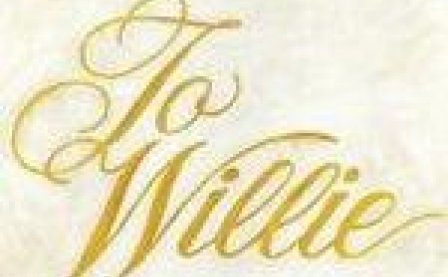I guess it’s ironic that the first song on Here’s To Taking It Easy filled me with dread. It wasn’t that it’s not a good song — “It’s Hard To Be Humble (When You’re From Alabama)” actually packs quite a punch — it was that Matthew Houck seemed so thoroughly to have abandoned that woozy, otherworldly echo that characterized his most recent record of original material, 2007’s immaculate Pride. That album meant so much to me — the thundering cadence of “At Death, A Proclamation” seemed literally taken from my own experience (it features a field recording done of my own college marching band’s drumline) — that the idea of an artist, even one I loved so much, moving on from that compositional place was a scary one, however relaxed the album’s name might be.
Pride hit like a ton of bricks; for all its emphatic, beat-poet delivery and rippling melodies, it seemed simultaneously close up and far, far away. The African-influenced harmonies and wild little hollers just reinforced its concept: Pride was both an emotion and an animal pack, untamed and implacable even as its timbre stayed this side of forceful. Here’s To Taking It Easy marks so definite an artistic evolution that it’s hard, for me, to reconcile it with what Houck’s music once was.
Obviously, Here’s To Taking It Easy shares more in instrumentation and subject matter with Phosphorescent’s 2009 record To Willie, which comprised 11 Willie Nelson covers and led to the artists’ ultimate meeting. The last time I saw Phosphorescent play live was after that release, and though the full band Houck brought performed numbers from both Pride and To Willie (maybe even a couple from 2005’s Aw Come Aw Wry or other earlier material), even the original tracks had taken on something of a country slant. By paying tribute to a genre and to a songwriter that inspired him, Houck seems to have sponged up the whole aesthetic of it, and he isn’t looking back. The most obvious example of this is “Heaven, Sittin’ Down,” a composition that seems so carbon-copied from that canon that I had to look it up to make sure it isn’t actually a Willie Nelson original. It’s not. Though, I have to admit it shares a melodic structure and chord progression, I think, with Pride’s “My Dove, My Lamb.” So maybe the twang’s always been in him.
Come to think of it, Houck always knew how to rock the ballad. Is the sighing slide and gentle drumming of “Nothing Was Stolen (Love Me Foolishly)” really all that different from the great moaning, hooting choruses of a thousand Houcks on “Be Dark Night,” for instance? And doesn’t “It’s Hard To Be Humble (When You’re From Alabama)” have the same sort of rhythmic gait as “A Picture Of Our Torn Up Praise,” even if the overall effect of the two songs is quite different?
More directly, “Hej, Me I’m Light” certainly carries the torch for what Houck always mastered: that which is cavernous, resonant, and haunting. With its repetitive thumping drums and weeping, falsetto backup vocals, it sounds most out of all these tracks like it would have fit comfortably on Pride. Still, the instrumentation is different; just listen to the almost Santana-esque noodling before the whole thing sort of comes to a clattering stop. Here’s the Houck we know and love, but one who has certainly left the past behind.
Admittedly, no track on Taking It Easy proves as woefully intimate as the ukulele and accordion lament of Pride’s “Wolves,” but “The Mermaid Parade” somehow rings just as true for all its simplicity. “Then I came back to this city,” he sings, “and you stayed home in L.A./ Then our two years of marriage/ In two short weeks slipped away.” And if the plodding gait of “Los Angeles” is the Phosphorescent of today, then maybe we could do worse than the flurry of pedal steels and classic rock drumming that concludes the album.
Pride was mournful; it seemed a tribute to the beauty found in sadness, always explored metaphorically, never trite. Here’s To Taking It Easy is more direct. It’s a celebration, a straightforward exploration of maturity through Southern, rueful ears. I’d argue that the album title does it no justice; there’s more here than a “let it go” attitude to be found in its verses.
So when I heard “It’s Hard To Be Humble,” with its bright piano and saxophone, at first it had the opposite effect on me than I’m sure was intended. I resented that it seemed more at home dancing on a New Orleans street than lonely in a Brooklyn or Athens, Georgia apartment (where much of Houck’s previous work took place). By the end of the song, though, the blaring unison horns and passionate delivery had won me over. It’ll never be the deft meshing of wild style and country lyricism Pride was, but Houck’s truthfulness and reverent skill make Here’s To Taking It Easy something to be proud of nonetheless.
More about: Phosphorescent




